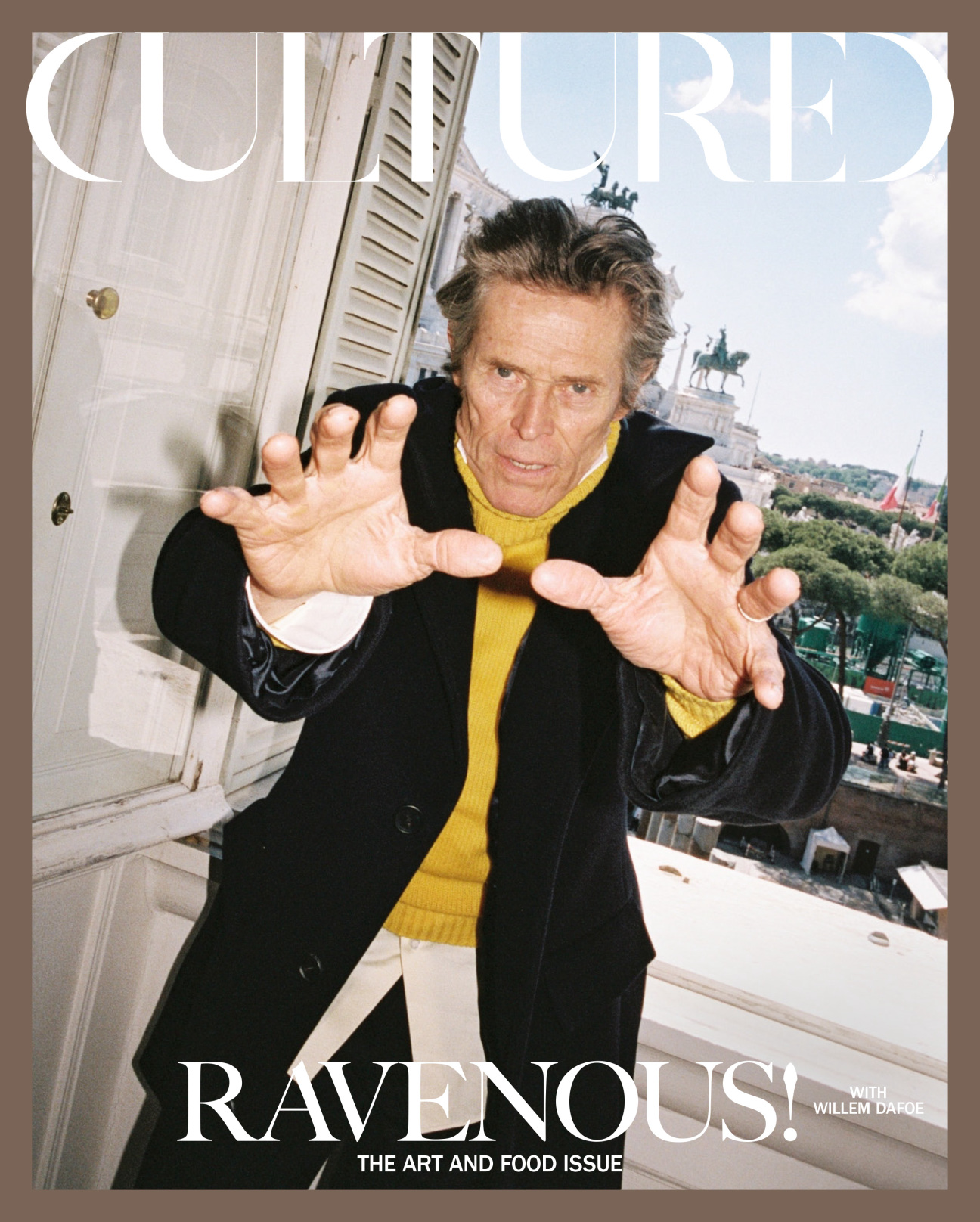
We’re used to seeing Willem Dafoe’s face blown up 90 feet wide at the movies. Marina Abramović looms just as large in the art historical canon for confrontational performances as daring and indelible as those of her Hollywood counterpart. But the two know one another on a much more intimate scale: Abramović first encountered Dafoe through his performances at the theater below her Manhattan apartment. Dafoe, for his part, felt a sense of kinship with the artist’s work—its riskiness and force—before he even met her. The two became steady collaborators in the mid-aughts, most recently starring opposite each other in Abramović’s operatic debut, The Seven Deaths of Maria Callas, which premiered in 2020 at Munich’s Bayerische Staatsoper.
These days, the pair cross paths when they can—swapping dirty jokes and catching one another’s shows and premieres in cities around the world. Rather than resting on their laurels, Dafoe, 68, and Abramović, 77, share a gnawing hunger to create. Based in Rome, Dafoe currently has nine films in production, including this September's Beetlejuice Beetlejuice, and appears in Yorgos Lanthimos’s heady thriller Kinds of Kindness, which is out this month, while Abramović is at work on “a Balkan erotic epic.” The reason for their shared relentlessness is plain: They simply can’t stop.
Marina Abramović: I’m in Detroit, where Houdini was born.
Willem Dafoe: That’s not true—I grew up where Houdini is from. He was born in Budapest, but he grew up in my hometown! Appleton, Wisconsin.
Abramović: I dedicated my entire life to Houdini last night.
Dafoe: Apparently not, because he wasn’t born there.
Abramović: You have your version, I have mine. [Harry Houdini died in Detroit.]
Dafoe: Okay, they want to know the last time we were together. It was last fall in London, at the presentation of Seven Deaths. You had your retrospective at the Royal Academy [of Arts].
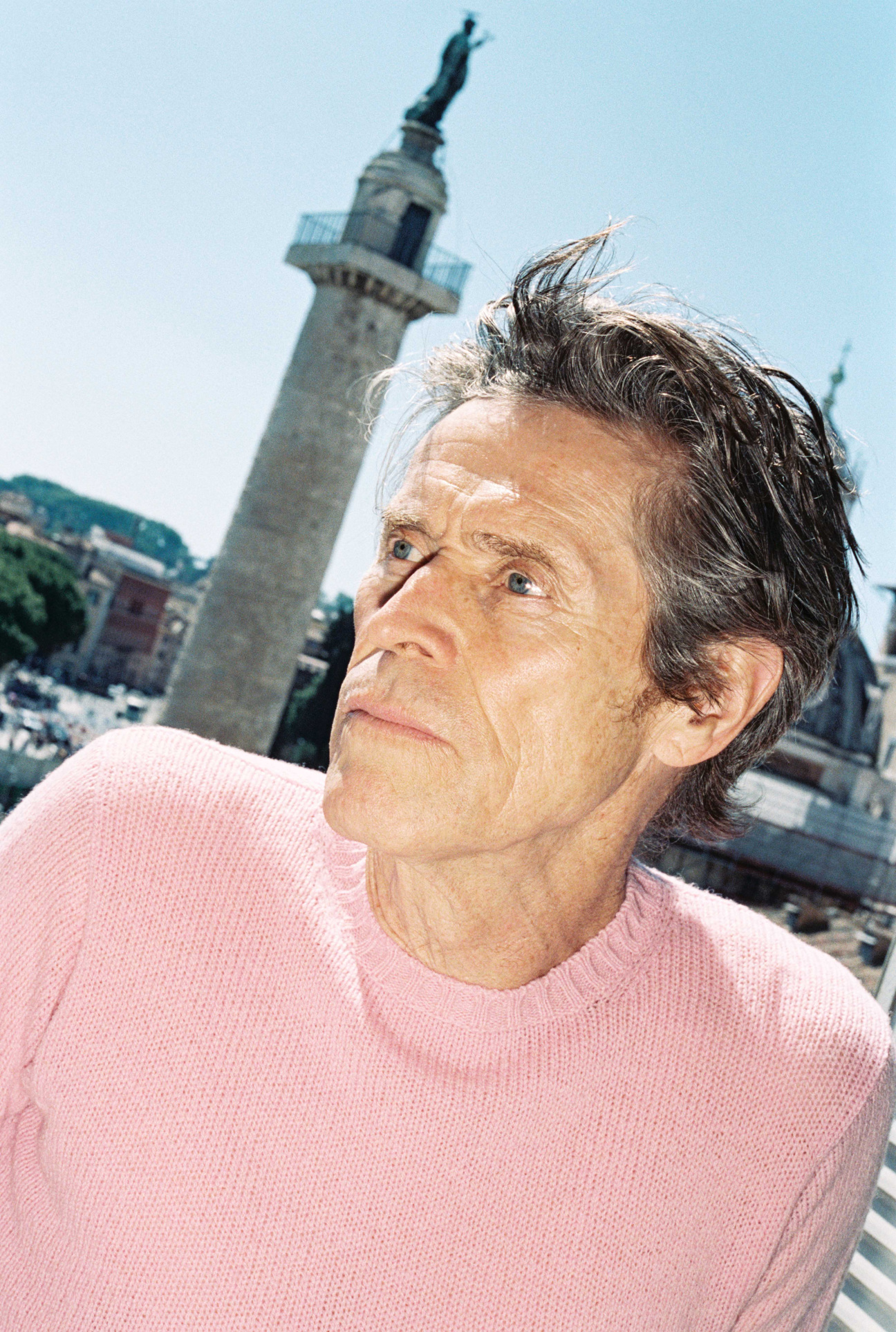
Abramović: Yes. That was an important moment for me—I was the first woman in 255 years to get a major retrospective there, and I was so happy for you to see it. And then, you know, there was the opera. We made Seven Deaths together, but you were always off shooting movies in strange places—a Canada jungle, Tasmania, I don’t know—so you never got to see it. Finally, you came to London.
I have more news for you, Willem. Seven Deaths was nominated for the Laurence Olivier Award for opera. Of course, the guy who won has done opera for 35 years. I’ve only made one in my life.
Dafoe: Scusa—dopo perché ho un’intervista! Ho detto già. Grazie. Sorry, Marina—go ahead.
Abramović: The Italians love you, don’t they? What were our first impressions of each other?
Dafoe: This time, you go first.
Abramović: When I moved to New York, I lived on the fourth floor of the same building that houses [experimental theater company] the Wooster Group, where you performed a lot. I would see many of the shows, and if I ever had a party in my apartment, I would go downstairs in secret and steal chairs from the theater. I knew you from your film work first, then from seeing you in that theater, which was very different. Then, of course, you’re an entirely different Willem in person. How I can explain this? You’re so normal.
Dafoe: Oh, thank you.
Abramović: There’s no bullshit, you’re a real human.
Dafoe: I knew of you by reputation—I’d seen videos of the early work. But I got to know you personally through my wife [director and screenwriter Giada Colagrande], who has known you for many years. We finally got to work together on Life and Death [of Marina Abramović] and Seven Deaths… We work together on death, I guess.
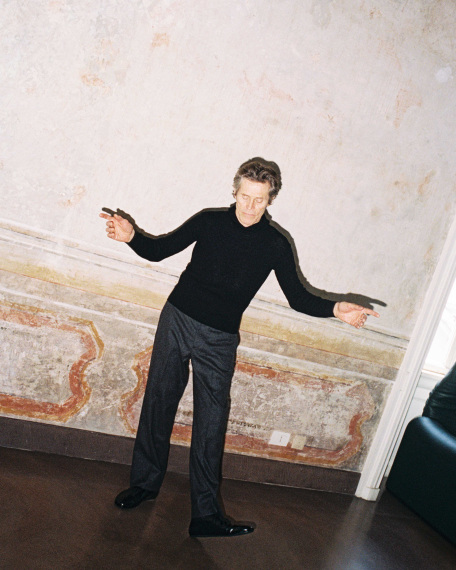
“Now I’m less interested in accomplishing things—I’m more interested in enjoying my life. You’re more open when you’re less concerned with yourself.”
—Willem Dafoe
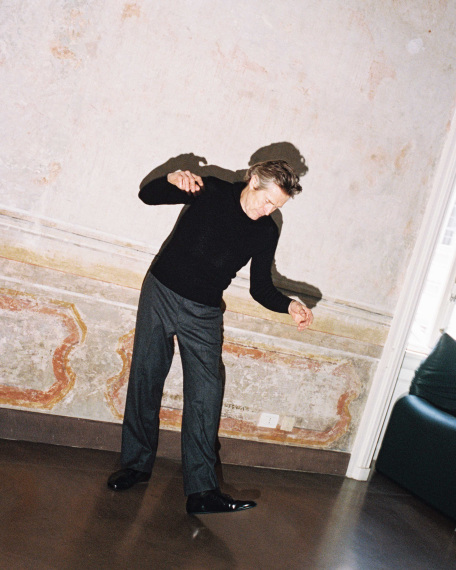
Abramović: The biggest bonding thing for me is the sense of humor. You have the right kind—we both love absolutely dirty jokes. So important.
Dafoe: Yours is sharper than mine, I must say. Every time we get together—and we made an exception today because it wasn’t appropriate—we cannot catch up until you’ve told your favorite joke of the moment.
Abramović: Let me just tell one. Two Serbian women are chatting, and the first one says, “You know, your husband is cheating.” The second replies, “Of course—I know that he’s cheating and who he’s cheating with, but I just don’t know with what.”
Dafoe: Excellent. That’s pretty tame for you.
Abramović: I’m polite today. We’ve worked together for a long time. Why do you think our partnership has lasted?
Dafoe: I’m happy to do anything with you, because I have a lot of respect for you. You’re the perfect mixture of hard work and play. I always felt that I was drawn to your kind of work even before I knew it. I like the event, the risk, that sense of putting your money where your mouth is. Or rather, you put your body where your heart is. So, I’m just happy to be in your company.
That’s pretty much true for anybody I collaborate with. If you’re in a state of stimulation and curiosity when you’re with them, that’s a good place to start. Then, no matter what you make—good or bad—it’s rooted in pleasure, in an urge to communicate your experiences and create new ones together.
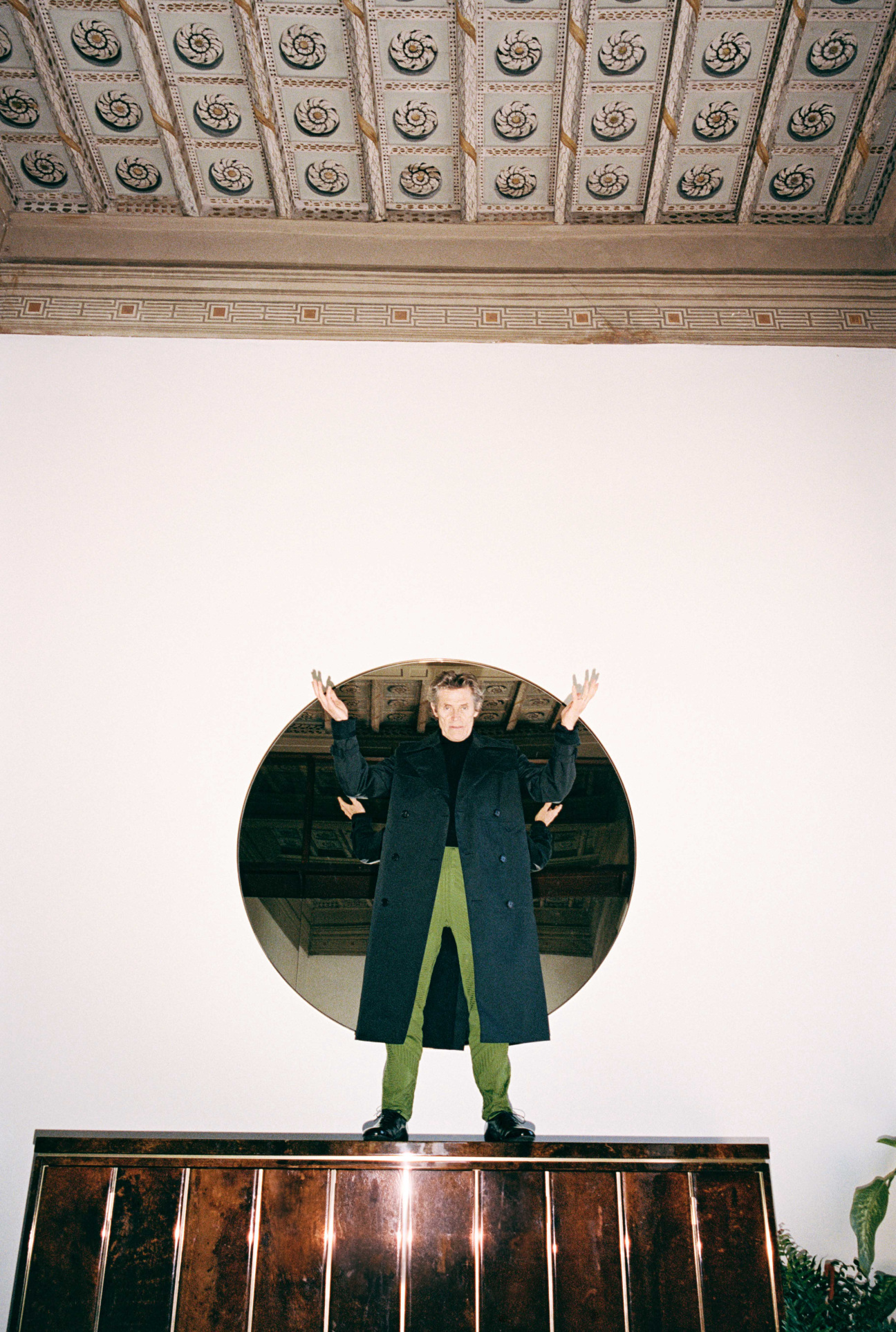
Abramović: I have to add a few things. When I started doing performance, theater was the enemy for me. I was like, “Oh, this is so fake. The blood is ketchup and that knife is not a knife.” You’re playing somebody else, you’re rehearsing, it’s not real. But when I saw you perform I learned this is not true. When you really embody the character, you actually become them. It’s fascinating to see.
When we made Seven Deaths [the film version] together, I discovered how to enter a pre-death state of mind, the peace without terror. Your help was so incredibly important to me. And another thing I like about you: your incredible generosity. A performance artist and a Hollywood star are very different creatures. You’re working with producers, big budgets, all this mumbo jumbo. In art, there’s never any money, there’s never any attention.
For you to go from all that luxury to working with a poorer artist, I thought you’d be unhappy. But you really wanted to work with me, and we made this film with the smallest budget possible. I will never forget this.
Dafoe: My pleasure. Has your relationship with your work changed over time?
Abramović: Dramatically. If someone had told me 10 years ago that I’d do an opera, I’d say they were completely mad. But I’m so secure in my own medium—I’ve been doing this 55 years—so I’m interested in change. Right now, I’m working on this crazy project for the Manchester [International] Festival, called Balkan Erotic Epic. I’ve studied eroticism from Albania, Bulgaria, and my own Serbia since 2011. I’m really deep into this whole thing. In Balkan cultures, the sexual organs allowed people to connect to divine energy.
There’s a ritual from the 14th century that I want to tell you about, Willem. If there were heavy rains in a village that threatened the crops, all the women would go out to the fields, lift their skirts, and show their vaginas to the gods. It would scare them, and they’d stop the rain. We all call this pornography today, and I’m probably going to be crucified for discussing this.
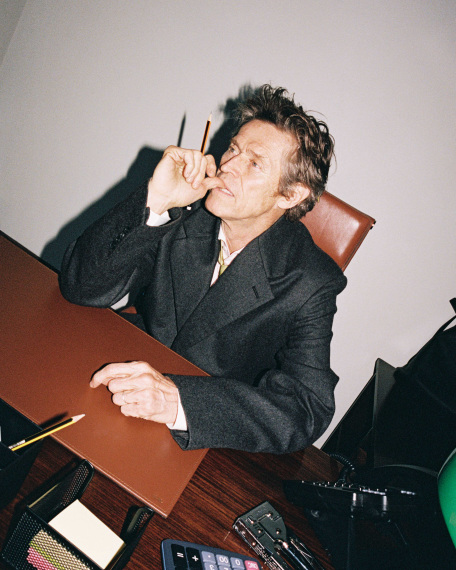
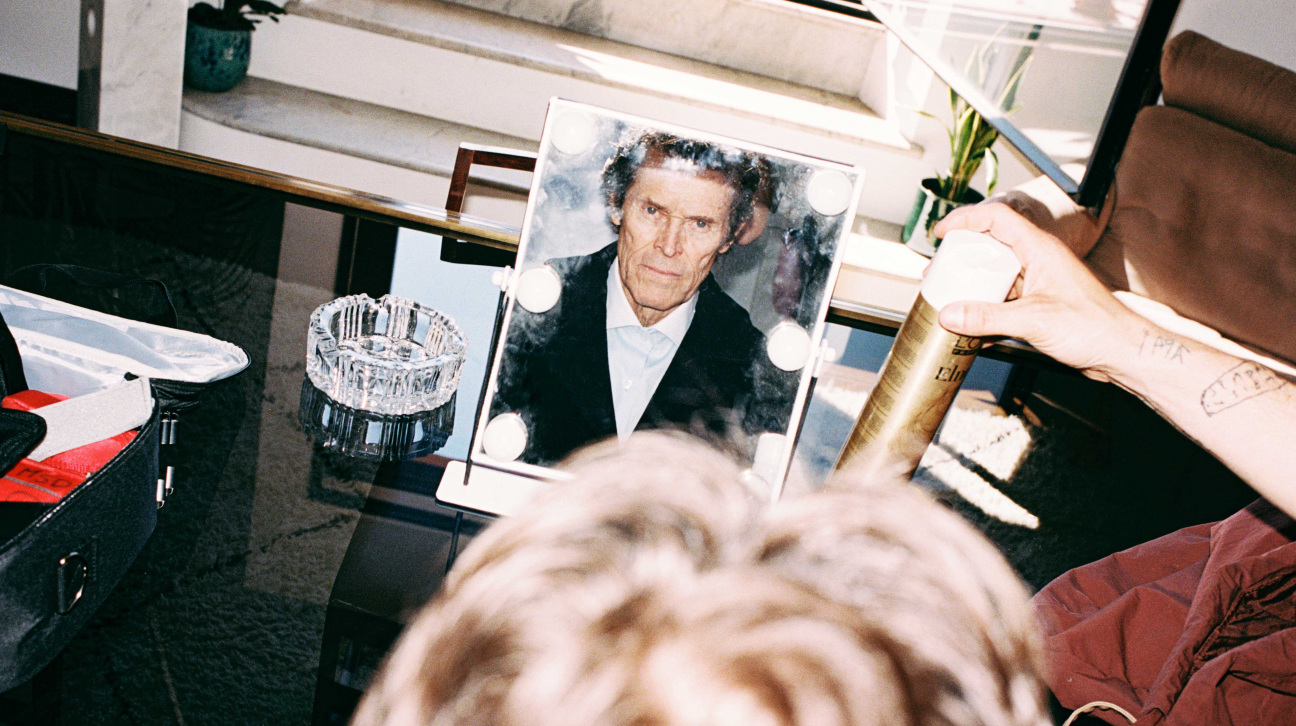
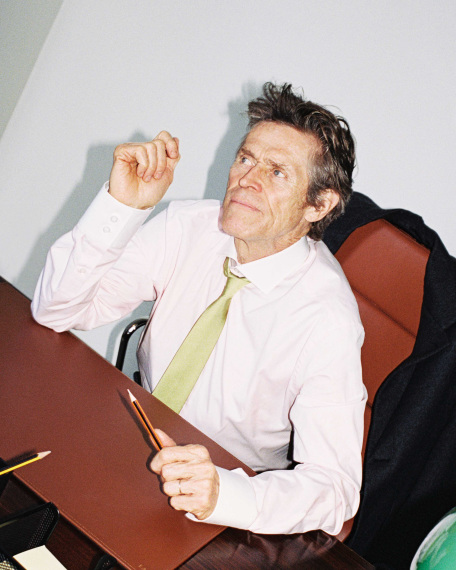
Dafoe: How do I follow that? I think we can end the interview right there. At the stage I’m in now, I have a different kind of ambition. When you’re young, you really have to stake your claim, and then go try to accomplish it. Now, I’m less interested in accomplishing things—I’m more interested in enjoying my life, my interests. It’s always been that way, but I had a different kind of ego before. I think that can block you from entertaining ideas that don’t originate with you. You’re more open when you’re less concerned about yourself.
Abramović: Also, the roles you’re taking lately are so incredibly interesting. Amazing diversity.
Dafoe: It’s never the role that attracts me; it’s always the situation. It’s the possibility of, for lack of a better word, adventure. You’ve got to fight a habit—it can dull the senses. Going to a place that I don’t know, that invites a different way of seeing and thinking, excites me. Everything is a miracle.
When you think of the many functions that you have nothing to do with but that brighten your life—your sight, your ability to put words to your feelings—it’s an incredible thing, being alive. You have to enter a place of wonder as often as possible. It’s not easy, because we want security, but you’ve got to trick yourself into opening that door. I’ve constructed several devices to trick myself that way. We’ve done it together, in fact.
Abramović: Yes. In our collaborations, we hardly ever need to talk—the understanding is immediately there. When you talk about miracles, there’s also the miracle of chemistry between two people. I’d like to find a place for you in my Balkan Erotic Epic, but what can I do? You’re not from the Balkans.
Dafoe: I’ve got Albanian friends, does that count?
Abramović: [Laughs] No. This is such a crazy project, Willem. It’s going to be outrageous. I’ll tell you about it later.
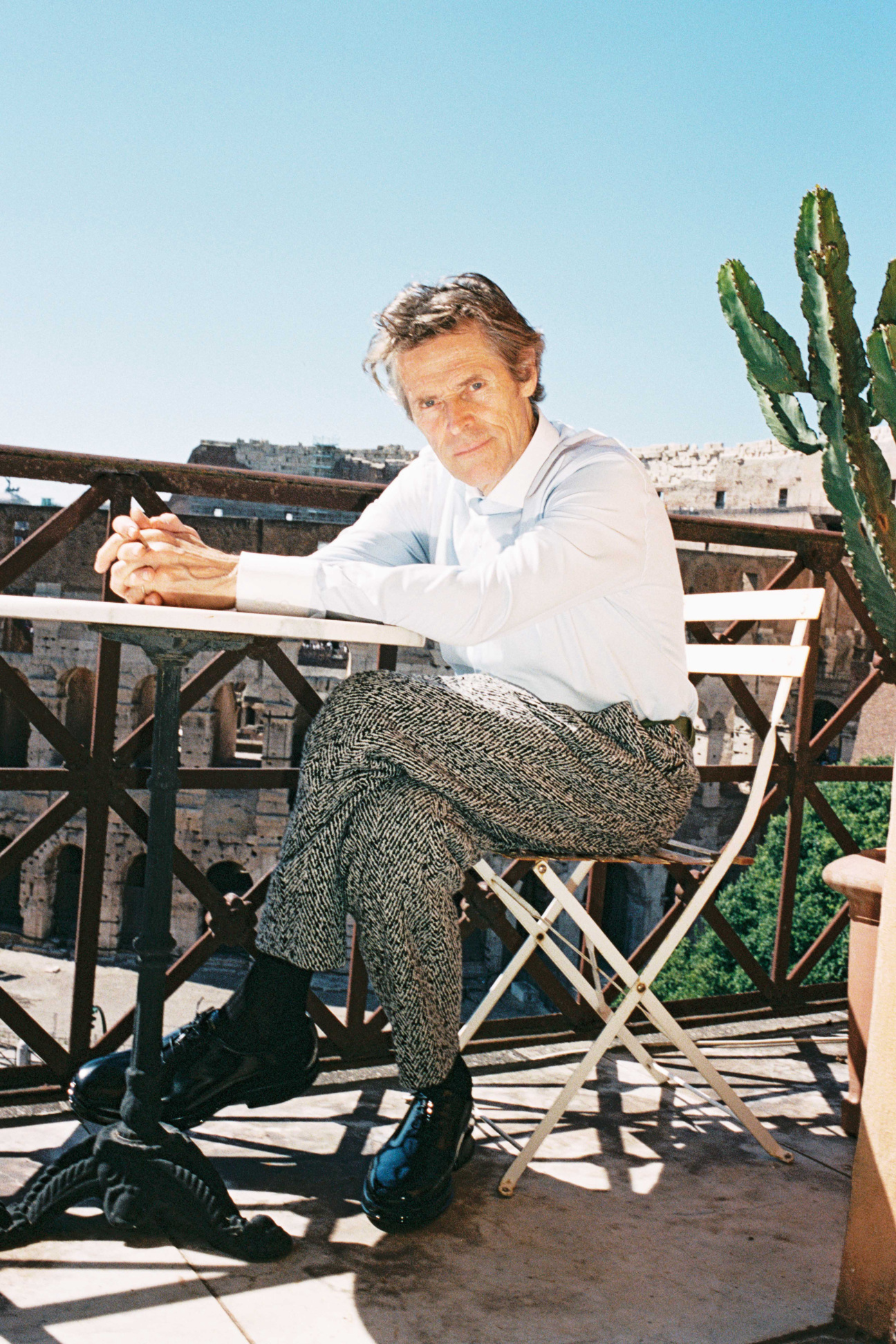
Dafoe: Can’t wait. Is there one question you’ve always wanted to ask me?
Abramović: My question for you is the same one I have for myself: When do we stop? Why are we so hungry? I’m 77, my dear, much older than you. My parents already have Alzheimer’s, so they’re half-dead, they don’t move around, and their pensions are used up. I can’t imagine becoming that—I can’t imagine a time when I’ll stop working. How about you?
Dafoe: I can’t imagine it either. Of course, what we do is not regular work. Mine is integrated deeply into my life now, and I’ve always worked with my partners, with family, and friends. I don’t have the kinds of divisions that others might, so I can’t imagine that part of my life dropping away. Maybe we’re just donkeys, and work is the carrot being dangled in front of us. It’s worked out pretty well for us so far. I still love so many things, so I don’t know why I would stop working, because that’s the way I get to enact some of that love.
Abramović: We really have enormous energy, you and I. I have no idea where I get it. You know, I have to get a knee replacement which is kind of a shitty thing. I have pain, and I walk with a stick. But I wake up in the morning, and I don’t even care—there’s something else that moves me. How incredible that we’ve both been blessed with this. And partners we love, too.
Dafoe: We got the whole package.
Abramović: [Laughs] Yes, we both have a very nice package.
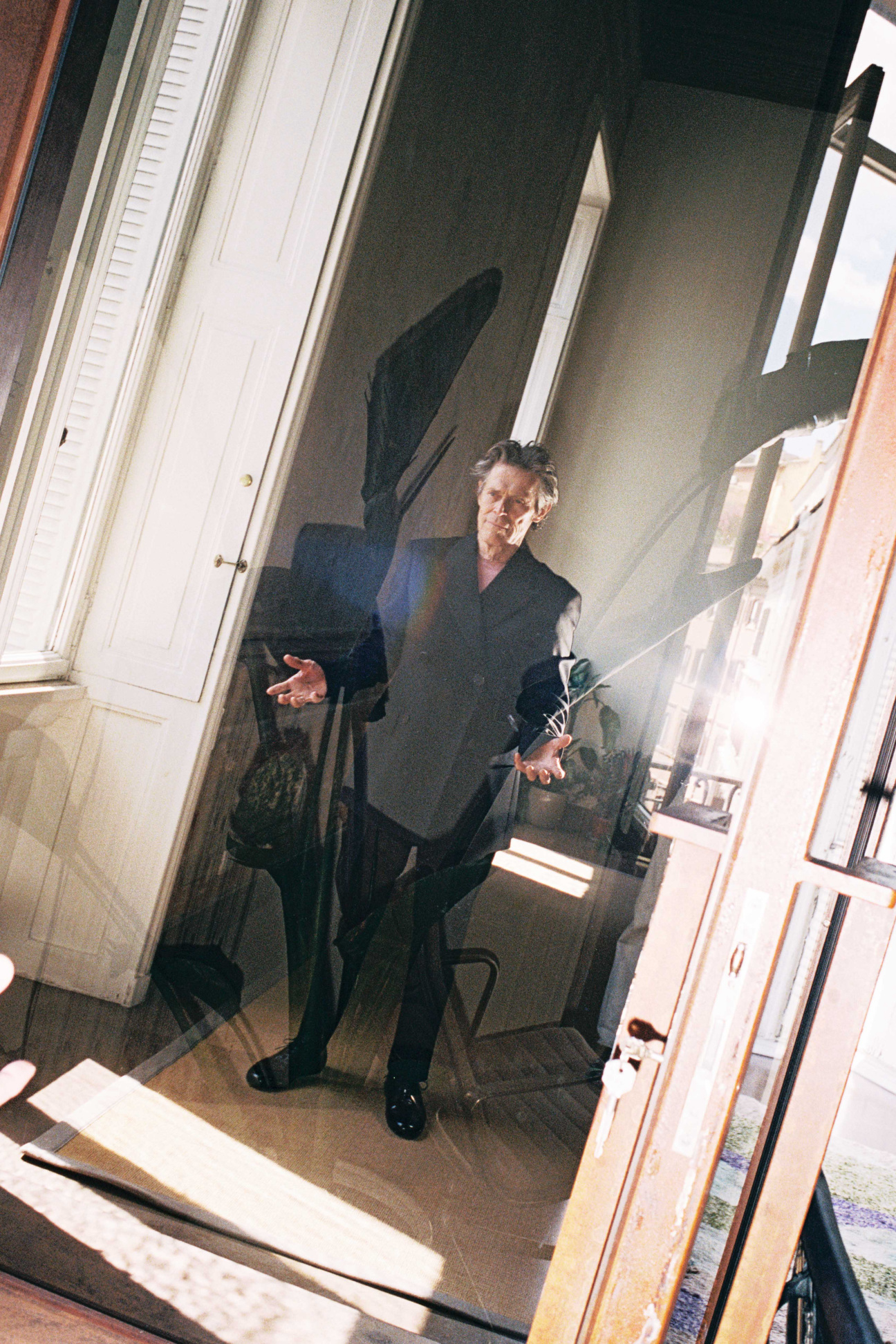
Grooming by Giulio Ordonselli
Photography Assistance by Tony Donato
Styling Assistance by Nicoletta Lilli
Digi Tech by Elisa Marchegiani
Production by Mai Productions


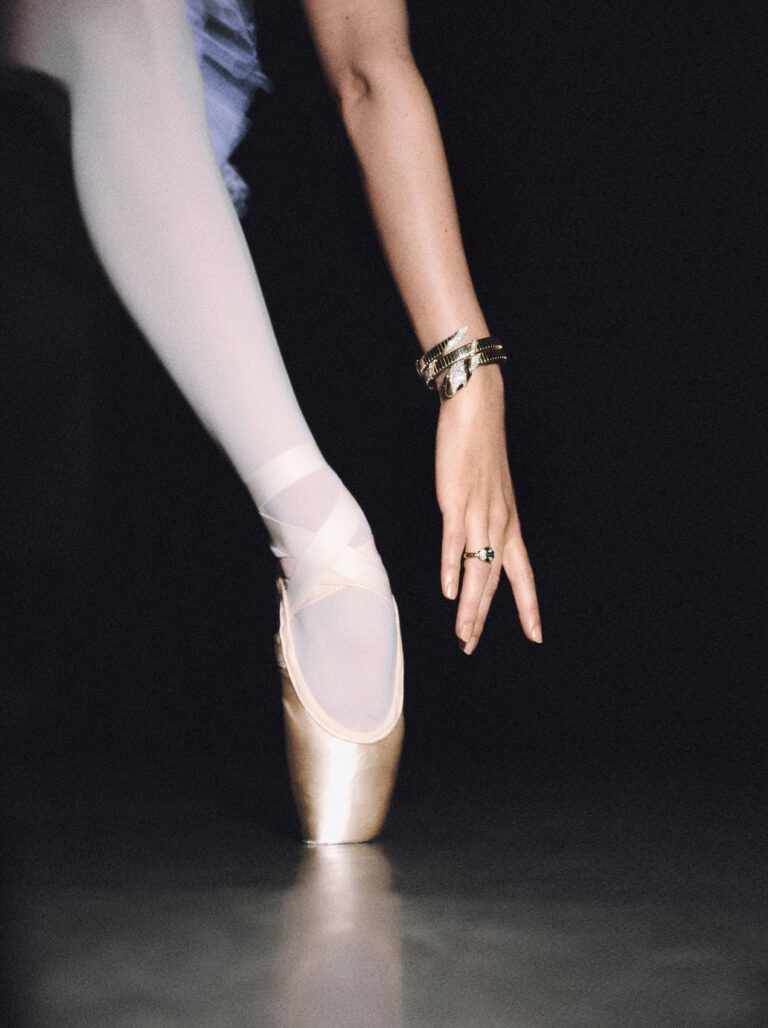
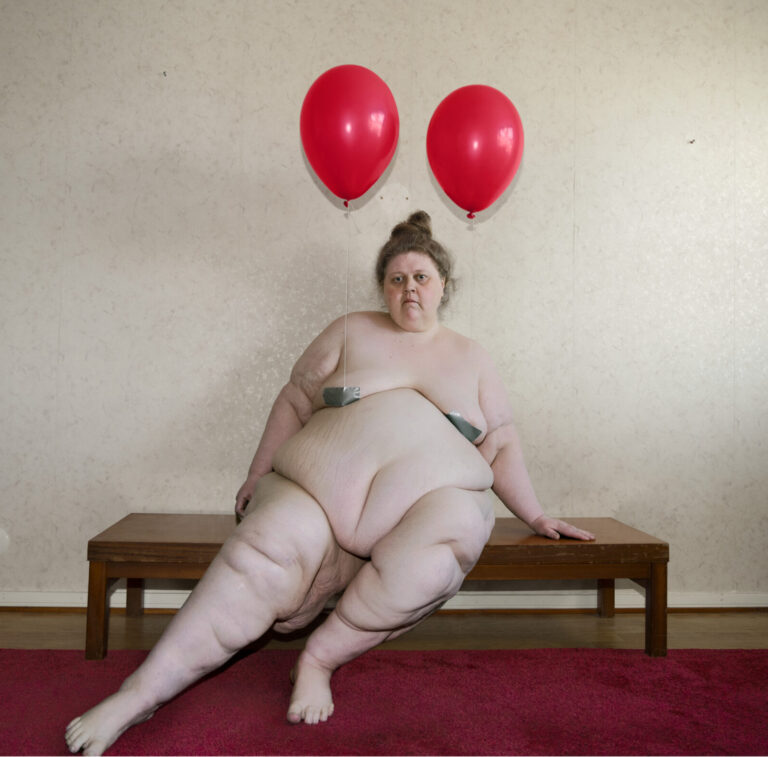

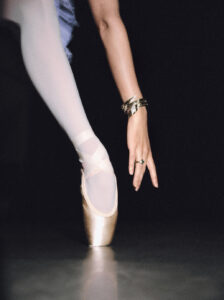
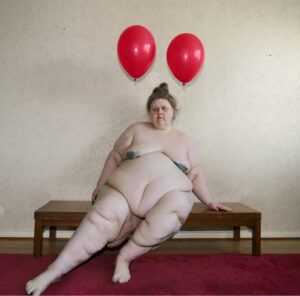



 in your life?
in your life?

